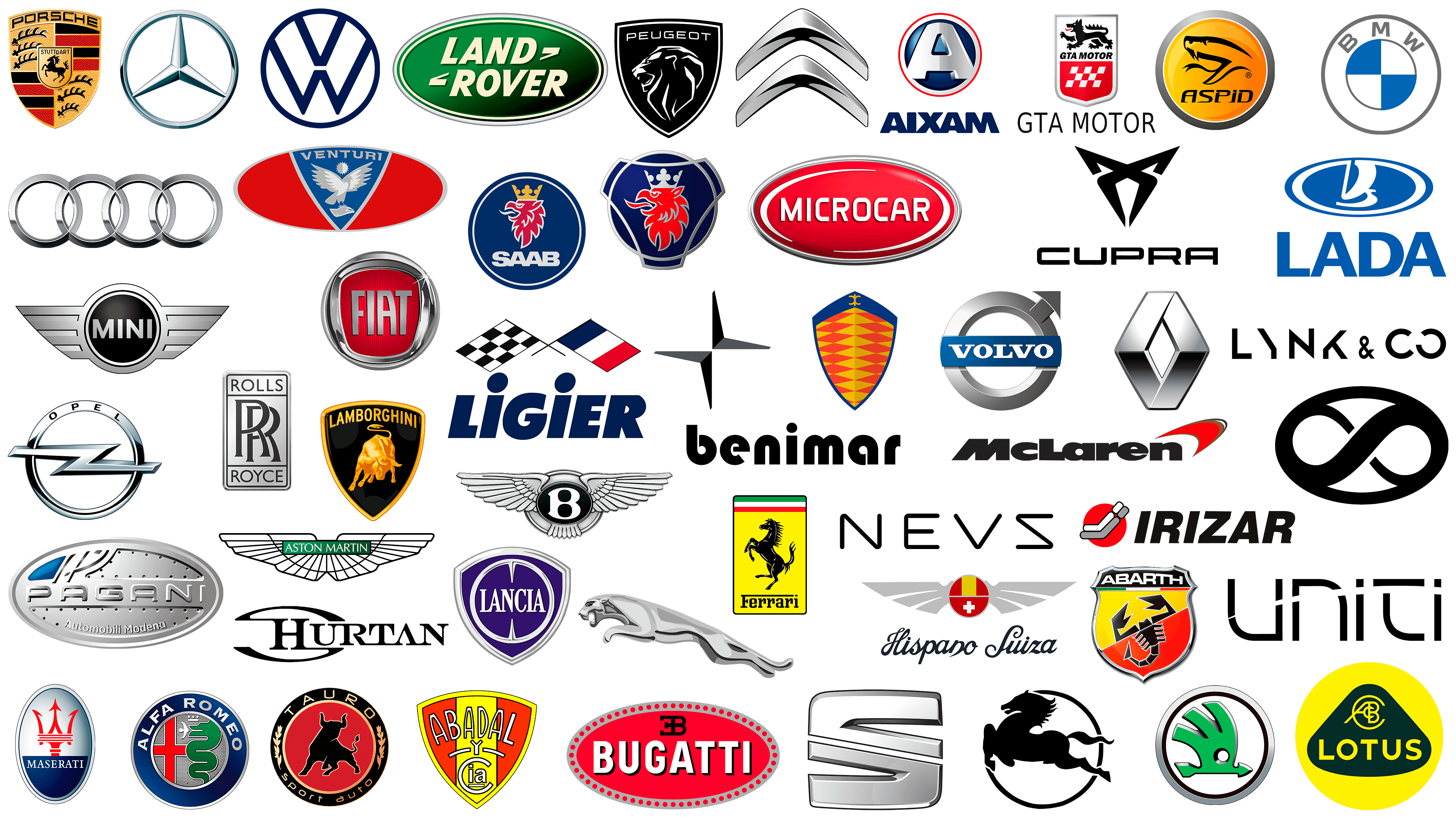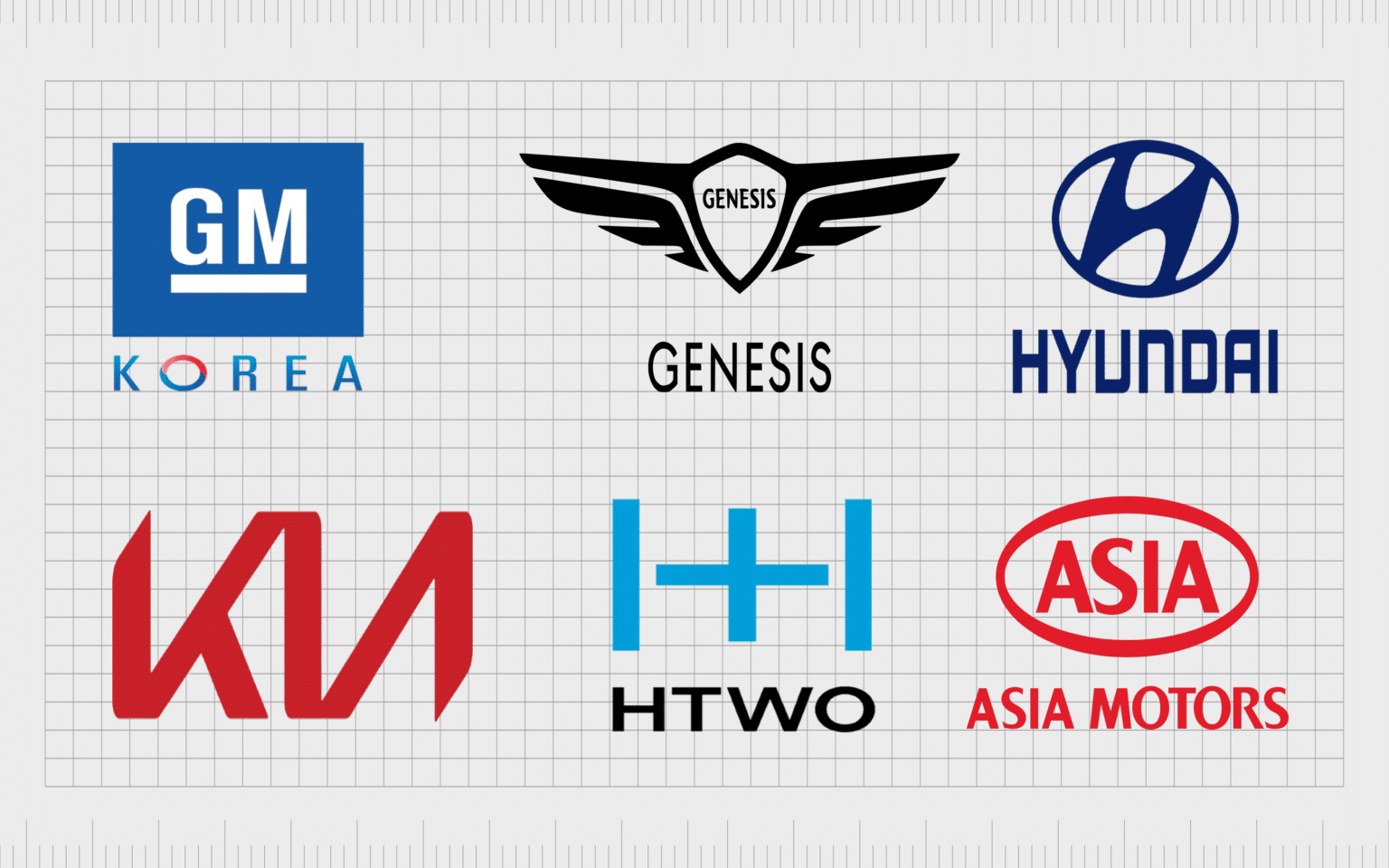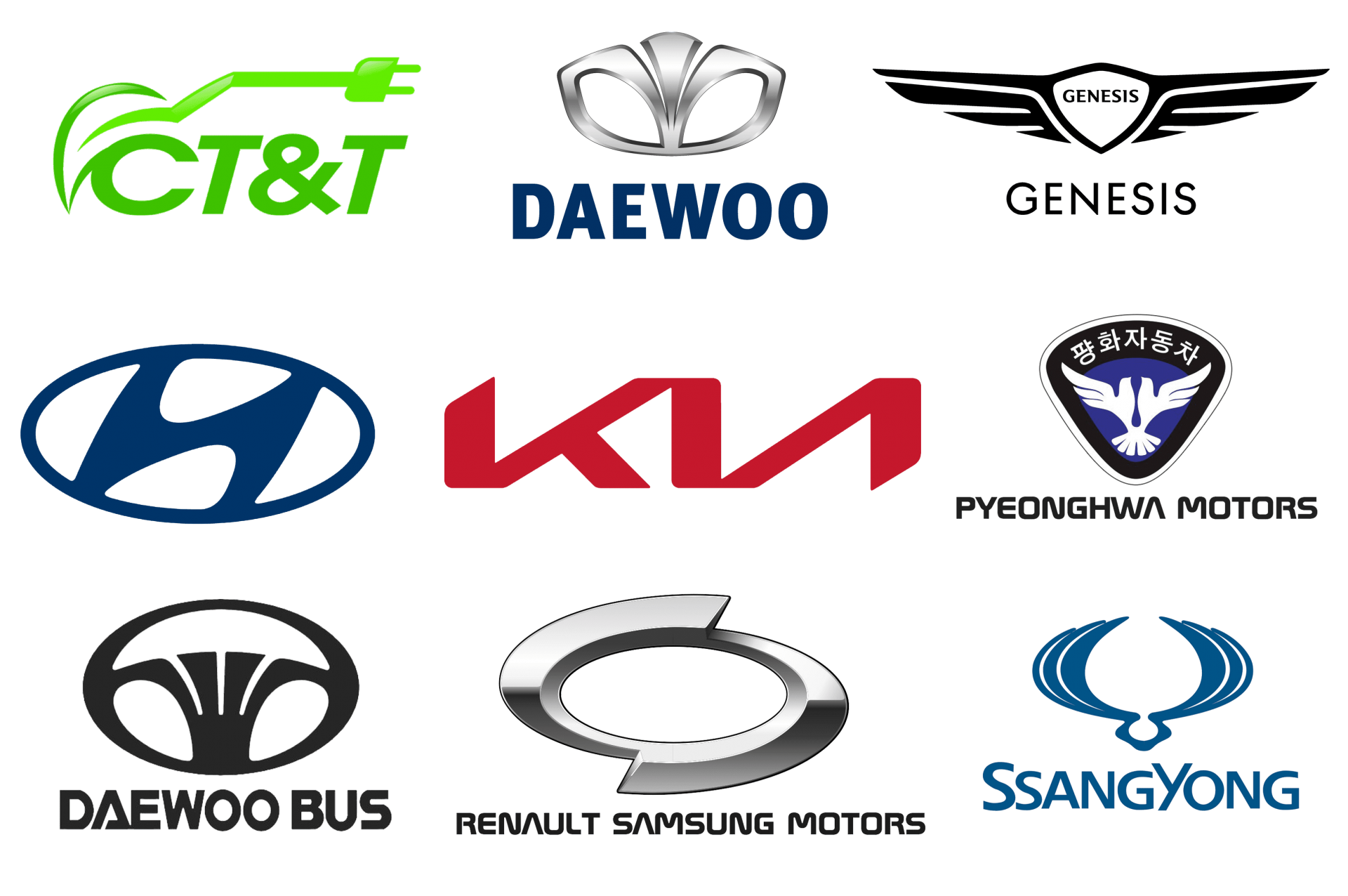Top Car Brands and Their Features: A Global Market Overview – The automotive industry is a dynamic landscape shaped by innovation, consumer preferences, and fierce competition. From the sleek lines of luxury vehicles to the practicality of everyday cars, understanding the features that define top brands is essential for both consumers and industry insiders.
This analysis delves into the global market share of leading car brands, dissects the key features that distinguish premium brands, explores emerging trends in car technology, and examines how brands target specific audiences.
This exploration sheds light on the factors driving brand success, the evolving landscape of car technology, and the strategies employed by manufacturers to connect with their target consumers. By examining these aspects, we gain a comprehensive understanding of the forces shaping the automotive industry and the future of car ownership.
Top Car Brands by Global Market Share
The global automotive industry is a dynamic and competitive landscape, with numerous car brands vying for market dominance. Understanding the top car brands by global market share provides insights into the industry’s trends and the factors that drive success. This analysis examines the top 10 car brands by global market share, their performance over the past five years, and the key drivers behind their success.
Global Market Share of Top Car Brands
The global market share of car brands is a key indicator of their performance and competitiveness. The following table lists the top 10 car brands by global market share in 2022, according to data from Statista:
| Rank | Brand | Market Share (%) |
|---|---|---|
| 1 | Toyota | 12.5 |
| 2 | Volkswagen | 10.2 |
| 3 | General Motors | 8.7 |
| 4 | Hyundai | 7.3 |
| 5 | Ford | 6.6 |
| 6 | Stellantis | 6.2 |
| 7 | Renault | 4.7 |
| 8 | Nissan | 4.4 |
| 9 | Honda | 4.3 |
| 10 | BMW | 3.8 |
Trends in Market Share Over the Past Five Years
The global market share of car brands has been subject to fluctuations over the past five years. Some brands have experienced growth, while others have seen their market share decline.
- Toyota has consistently held the top spot in terms of global market share, demonstrating its enduring popularity and strong brand recognition. The company’s focus on fuel efficiency and reliability has been a key driver of its success.
- Volkswagen has also maintained a strong market share, benefiting from its diverse range of models and its presence in key markets such as China and Europe.
- Hyundai has emerged as a significant player in the global automotive market, driven by its focus on innovative design, advanced technology, and competitive pricing.
- Ford has faced challenges in recent years, with its market share declining due to factors such as competition from Asian brands and the company’s shift away from passenger cars towards SUVs and trucks.
- Stellantis, formed through the merger of Fiat Chrysler Automobiles and PSA Group, has seen its market share rise due to the combined strength of its brands and its focus on electrification.
Factors Contributing to the Success of Top Car Brands
The success of top car brands is attributed to a combination of factors, including:
- Brand recognition and reputation:Strong brand recognition and a positive reputation are essential for attracting customers and building loyalty. Brands like Toyota and Volkswagen have established themselves as synonymous with quality and reliability, which has contributed to their sustained success.
- Product innovation and technology:Continuous innovation and the development of cutting-edge technologies are crucial for staying ahead of the competition. Brands like Hyundai and Tesla are known for their commitment to innovation, which has helped them gain market share.
- Global reach and market presence:A strong global reach and presence in key markets are essential for achieving significant market share. Brands like Toyota and Volkswagen have established extensive manufacturing and distribution networks around the world, allowing them to access a wider customer base.
- Strong marketing and branding strategies:Effective marketing and branding strategies are essential for communicating a brand’s value proposition to consumers and building brand awareness. Brands like BMW and Mercedes-Benz are known for their sophisticated marketing campaigns and their association with luxury and prestige.
- Cost efficiency and operational excellence:Efficient operations and cost control are essential for maintaining profitability in a competitive market. Brands like Toyota and Volkswagen have a reputation for their lean manufacturing processes and their ability to produce vehicles at a competitive cost.
Features that Define Premium Car Brands

Premium car brands are distinguished from mainstream brands by a unique blend of features that cater to a discerning clientele seeking exclusivity, performance, and a heightened driving experience. These brands are not just about transportation; they represent a lifestyle and a statement of success.
Key Features of Premium Car Brands
Premium car brands offer a combination of factors that set them apart from mainstream brands. These features include:
- Engine Performance:Premium car brands often feature powerful engines, advanced drivetrains, and high-performance options. These engines deliver exceptional acceleration, smooth handling, and a thrilling driving experience. For example, the BMW M3 boasts a twin-turbocharged inline-six engine that generates over 500 horsepower, offering exhilarating performance and precise handling.
- Luxury Amenities:Premium cars are known for their opulent interiors, featuring premium materials like leather, wood, and metal. They often come equipped with advanced comfort features, such as heated and ventilated seats, massage functions, and advanced sound systems. For instance, a Rolls-Royce Phantom offers a luxurious cabin with hand-stitched leather upholstery, a panoramic sunroof, and a state-of-the-art sound system that creates an immersive audio experience.
- Advanced Technology:Premium car brands invest heavily in cutting-edge technology, integrating features like advanced driver-assistance systems (ADAS), sophisticated infotainment systems, and personalized settings. These technologies enhance safety, convenience, and connectivity. The Mercedes-Benz S-Class, for example, incorporates features such as adaptive cruise control, lane-keeping assist, and a digital instrument cluster that provides a personalized and intuitive driving experience.
From the luxurious leather interiors of a Mercedes-Benz to the rugged off-road capabilities of a Jeep, top car brands offer a diverse range of features catering to different lifestyles. However, for those who prefer to navigate the waters rather than the roads, securing the right insurance is crucial.
USAA, known for its exceptional service to military members, provides comprehensive boat insurance coverage, ensuring peace of mind on the open seas. Boat Insurance Quote USAA: A Guide for Military Members can help you find the perfect policy for your needs, so you can focus on enjoying your time on the water, knowing your investment is protected.
Returning to the automotive realm, consider the fuel efficiency of a Toyota or the cutting-edge technology of a Tesla, as each brand offers unique advantages.
- Exclusive Design and Craftsmanship:Premium car brands prioritize design and craftsmanship, employing skilled artisans to create vehicles that exude elegance and exclusivity. Their design language is often characterized by sleek lines, distinctive styling cues, and meticulous attention to detail. The Aston Martin DB11, for instance, showcases a timeless design with a low-slung profile, a muscular stance, and a handcrafted interior that embodies British luxury.
- Brand Prestige and Exclusivity:Premium car brands cultivate a strong brand image and exclusivity, often associated with status, success, and a certain lifestyle. They often have a loyal customer base who appreciate the brand’s heritage, craftsmanship, and the unique experience it offers. For example, the Ferrari brand is synonymous with high-performance sports cars and racing heritage, attracting enthusiasts who value speed, exclusivity, and the thrill of the open road.
Comparison of Premium Car Brands
To understand the unique features of premium car brands, let’s compare three iconic brands:
| Feature | BMW | Mercedes-Benz | Audi |
|---|---|---|---|
| Engine Performance | Known for its powerful inline-six and V8 engines, delivering responsive acceleration and precise handling. | Offers a wide range of engines, from efficient four-cylinders to powerful V8s and V12s, emphasizing both performance and efficiency. | Focuses on advanced turbocharged engines, offering a balance of power and fuel efficiency. |
| Technology | Advanced driver-assistance systems (ADAS), intuitive infotainment systems, and a focus on connectivity. | Pioneering driver-assistance technologies, advanced infotainment systems, and a focus on luxury and comfort. | Innovative virtual cockpit displays, advanced driver-assistance systems, and a focus on connectivity and personalization. |
| Luxury Amenities | Premium materials, comfortable seats, and advanced sound systems. | Opulent interiors, premium materials, and a focus on comfort and convenience. | Sophisticated interiors, premium materials, and a focus on technology and design. |
| Safety | Comprehensive safety features, including airbags, stability control, and advanced driver-assistance systems. | High safety standards, incorporating advanced driver-assistance systems and innovative safety technologies. | Strong safety ratings, advanced driver-assistance systems, and a focus on occupant protection. |
| Comfort | Ergonomic design, comfortable seats, and a focus on noise reduction. | Emphasis on comfort and convenience, with features like massage seats, heated and ventilated seats, and advanced climate control. | Comfortable seats, premium materials, and a focus on interior design and ergonomics. |
| Performance | Known for its sporty handling, responsive engines, and high-performance models. | Offers a range of performance models, from sporty sedans to powerful SUVs, with a focus on both performance and luxury. | Focuses on advanced technology and quattro all-wheel drive, delivering impressive performance and handling. |
Emerging Trends in Car Technology: Top Car Brands And Their Features
The automotive industry is undergoing a rapid transformation, driven by technological advancements that are reshaping the way we drive and interact with our vehicles. Emerging trends like autonomous driving, electric vehicles, and connectivity are revolutionizing the driving experience, offering greater safety, efficiency, and convenience.
From the sleek design and advanced safety features of a Tesla Model S to the rugged performance of a Jeep Wrangler, top car brands offer a diverse range of vehicles to suit every need and lifestyle. However, protecting your investment is crucial, and that includes securing adequate home insurance coverage.
For Rhode Island residents seeking comprehensive insurance solutions, Rhode Island Home Insurance Quotes: A Guide for Homeowners provides valuable information and resources to ensure your home is properly protected, just as you safeguard your prized vehicle.
Autonomous Driving
Autonomous driving, also known as self-driving technology, is one of the most significant advancements in car technology. It involves the use of sensors, cameras, and artificial intelligence (AI) to enable vehicles to navigate and operate without human intervention. Autonomous driving has the potential to significantly improve road safety, reduce traffic congestion, and enhance accessibility for individuals with disabilities.Several car brands are leading the way in autonomous driving technology.
- Tesla:Tesla’s Autopilot and Full Self-Driving (FSD) systems are among the most advanced autonomous driving technologies available. Tesla vehicles use a combination of cameras, radar, and ultrasonic sensors to perceive their surroundings and make decisions.
- Waymo:Waymo, a subsidiary of Alphabet (Google’s parent company), is a pioneer in autonomous driving technology. Waymo’s self-driving cars have logged millions of miles on public roads, and the company is currently operating a robotaxi service in Phoenix, Arizona.
- Cruise:Cruise, a subsidiary of General Motors, is another major player in the autonomous driving space. Cruise’s self-driving vehicles use a combination of lidar, radar, and cameras to navigate their surroundings.
Electric Vehicles, Top Car Brands and Their Features
Electric vehicles (EVs) are gaining popularity as a sustainable alternative to gasoline-powered cars. EVs use electric motors instead of internal combustion engines, reducing greenhouse gas emissions and dependence on fossil fuels. EVs offer several advantages, including lower operating costs, quieter operation, and faster acceleration.Major car manufacturers are investing heavily in EV development and production.
From the sleek, performance-driven designs of BMWs to the spacious interiors of SUVs like the Toyota Highlander, understanding a car’s features is crucial when choosing your next ride. To ensure you’re properly protected on the road, securing the right insurance policy is equally important.
Get a USAA Insurance Quote: A Comprehensive Guide can help you navigate the complexities of car insurance, providing valuable insights on coverage options and pricing. Once you’ve secured your insurance, you can confidently explore the world of top car brands and their unique features, making an informed decision about your next vehicle.
- Tesla:Tesla is widely recognized as a leader in the EV market. Tesla’s vehicles, such as the Model S, Model 3, and Model Y, are known for their performance, range, and technology.
- Volkswagen:Volkswagen has committed to becoming a leading player in the EV market. The company plans to launch a wide range of electric vehicles in the coming years, including the ID.3, ID.4, and ID.5.
- General Motors:General Motors is also making significant strides in the EV market. The company has introduced the Chevrolet Bolt EUV, the Cadillac Lyriq, and the GMC Hummer EV.
Connectivity
Connected car technology is transforming the way drivers interact with their vehicles and the world around them. Connected cars use embedded sensors and communication systems to provide real-time information, entertainment, and safety features. Car brands are integrating connectivity features into their vehicles.
- BMW:BMW’s ConnectedDrive system offers a wide range of connectivity features, including navigation, entertainment, and safety services.
- Audi:Audi’s MMI infotainment system provides a user-friendly interface for accessing connectivity features, such as music streaming, navigation, and voice control.
- Mercedes-Benz:Mercedes-Benz’s MBUX infotainment system offers a personalized and intuitive experience, with voice control, gesture recognition, and augmented reality navigation.
Car Brands and Their Target Audiences

Car brands carefully craft their vehicles and marketing strategies to appeal to specific target audiences. Understanding these target demographics helps explain why certain brands resonate with certain groups of consumers.
Target Audience Segmentation
Identifying the target audience for a car brand involves considering factors such as age, income, lifestyle, and values. Here’s a breakdown of three car brands and their respective target audiences:
| Brand | Target Audience | Key Features | Marketing Strategies |
|---|---|---|---|
| Tesla | Tech-savvy individuals, early adopters, environmentally conscious consumers, typically with higher incomes, aged 30-55. | High-performance electric powertrains, advanced technology features (autopilot, touchscreens), sleek design, sustainable manufacturing practices. | Emphasis on innovation, sustainability, and futuristic design, leveraging social media and online channels to reach tech-savvy audiences, focusing on performance and range, showcasing the brand’s commitment to environmental responsibility. |
| Toyota | Families, value-conscious consumers, individuals seeking reliability and practicality, typically with moderate incomes, spanning a wide age range. | Fuel-efficient engines, spacious interiors, high safety ratings, durable construction, affordable price points. | Highlighting reliability, safety, and value, emphasizing family-oriented features, leveraging traditional advertising channels like television and print media, showcasing customer testimonials and long-term reliability. |
| Porsche | Affluent individuals, car enthusiasts, performance-oriented drivers, typically with high incomes, aged 35-65. | High-performance engines, sporty handling, luxurious interiors, exclusive brand image, strong racing heritage. | Emphasizing performance, exclusivity, and heritage, leveraging high-end events and sponsorships, showcasing the brand’s racing legacy, focusing on design and craftsmanship, targeting affluent and discerning consumers. |
Final Wrap-Up

As the automotive industry continues to evolve, the interplay between brand features, technology, and target audiences will remain paramount. Understanding these dynamics is crucial for both manufacturers and consumers, enabling informed decisions and shaping the future of the car market.
From electric vehicles and autonomous driving to personalized experiences and advanced safety features, the landscape is constantly changing, and those who stay ahead of the curve will be the ones who thrive.


